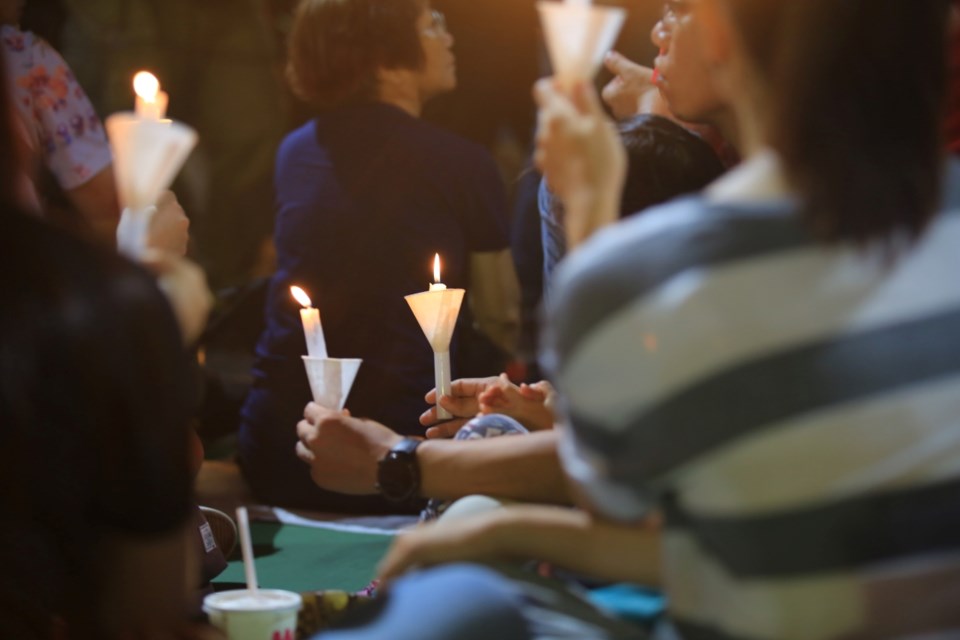Thousands of people in Hong Kong defied a ban on gatherings amidst COVID-19 fears, to hold a vigil to mark the 31st anniversary of the Tiananmen Square Massacre earlier this week.
Activists said the Hong Kong authorities’ decision to ban the vigil for the first time in 30 years is an attempt to demonstrate its loyalty to China.
“This event has happened for the past thirty years. Every time Hong Kong faces a political crisis, people will say, ‘This might be the last time to hold a candlelight vigil; we have to attend.’ So we will continue this tradition this year,” said Hong Kong activist and former politician Lee Cheuk-yan.
Lee spoke, in Chinese, to the Deutsche Welle’s Chinese language news site about the vigil. Deutsche Welle (DW) is a German-government funded public international broadcaster.
Thursday marked the 31st anniversary of the 1989 Tiananmen Square massacre – commonly known as the June Fourth incident – in Beijing, when the Chinese government cracked down on student-led demonstrations. Thousands of the pro-democracy protesters were injured or killed by Chinese military troops equipped with assault rifles and tanks.
Every year, people in Hong Kong hold vigils to commemorate the 1989 protest. However, in mainland China, history is being rewritten or even erased.
Thousands of Hongkongers showed up Thursday at Hong Kong’s Victoria Park and chanted slogans, such as “Hong Kong independence, the only way out,” while trying to observe social distancing rules.
According to reports from Ming Pao Daily, the Hong Kong Alliance in Support of Patriotic Democratic Movements of China asked citizens to come out to the streets to show their support for Hong Kong’s independence from China.
Lee, who is president of the democratic Hong Kong Alliance in Support of Patriotic Democratic Movements of China – founded May 21, 1989 – said his organization handed out 100,000 candles to encourage citizens to “light a candle wherever they are.” He also urged the Hong Kong police to give citizens some space to honor those who lost their lives in 1989.
Tensions increase in Hong Kong as National security bill looms
Lee told DW reporters, in Chinese, that this year might be the last year Hongkongers are allowed to hold a vigil. Therefore, he encourages all Hongkongers to join them.
In addition, the Chinese government proposed a National Security law on May 21, which that could lead to a legal framework that would ostensibly prevent and punish terrorism, separatism and foreign interference. However, protesters believe the law will be used to quell dissent.
Lee said that Beijing revealed the draft bill before June 4, which shows current Hong Kong Chief Executive Carrie Lam’s loyalty to Beijing.
“Meanwhile, the Hong Kong government banned vigils due to restrictions placed on public gatherings to limit the spread of the pandemic – and it’s a perfect excuse for the government.
“The excuse (they used) is absurd because schools and businesses have already resumed operations in Hong Kong. But the authorities don’t care about that and are determined to ban any public gathering, including rallies against the national security law,” said Lee.
“The most concerning part is what might happen if the national security law is enacted. Once the law is passed and put into enforcement in Hong Kong, other freedoms in the city will be taken away,” said Lee.



